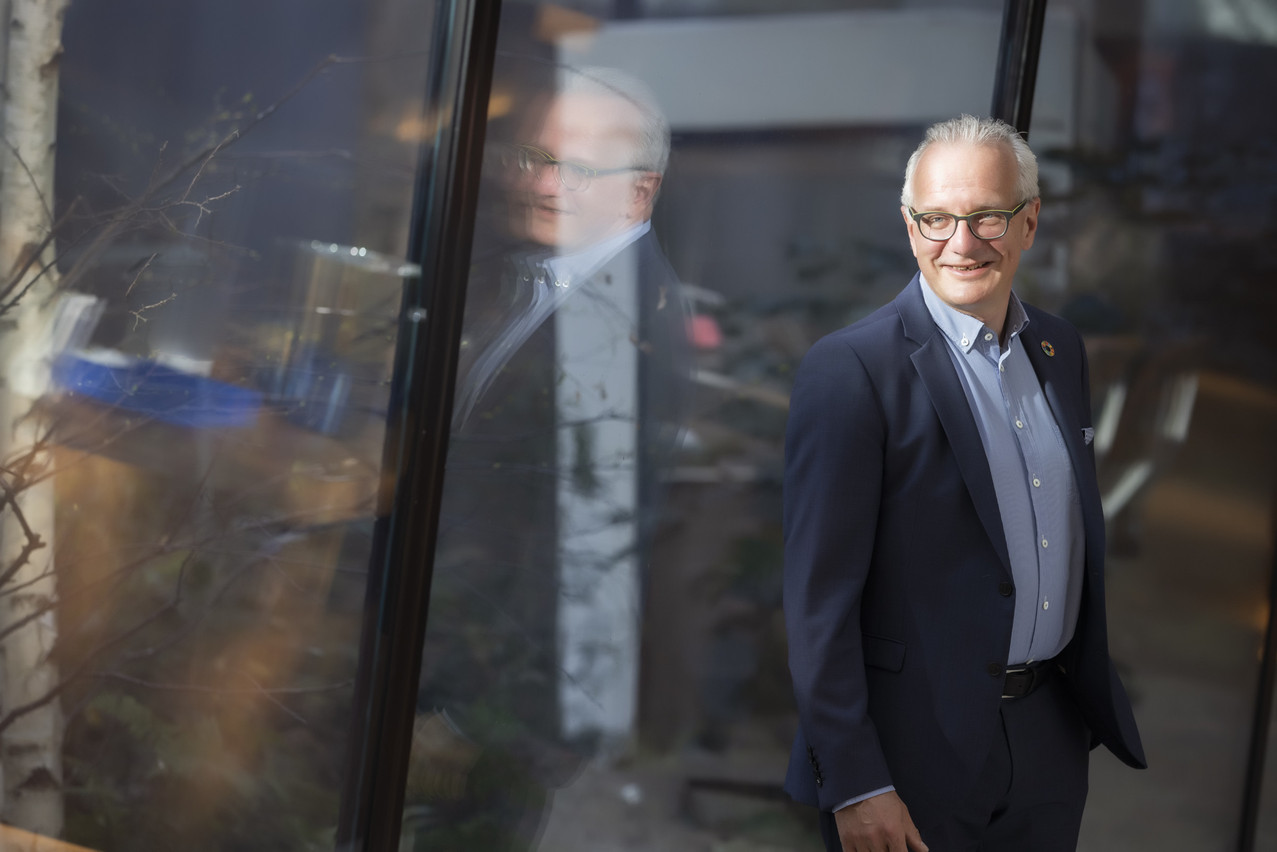has spent his entire career in the insurance sector. He joined the Foyer Group in 2004 as COO and then took over as CEO in April 2014. He is also chairman of the board of directors at Aca, the Luxembourg association of insurers and reinsurers.
Marc Fassone: Where do you see the Foyer Group in 100 years?
Marc Lauer: 100 years is a long time. I don’t know where we will be, but we have one ambition: to remain the leading insurer in Luxembourg, the first choice for all our clients, both individuals and companies. Both in our insurance activities and in our asset management activities.
In the past, we used to pursue very long-term strategies. Today, we give ourselves the means to be agile and to respond quickly to a future which is very uncertain. But there are certainties: the world will be more tech-driven, more and in this environment, tomorrow’s clients will behave differently from today’s clients.
How are customer needs changing?
Insurance has several missions. The first is the protection of assets. And this will always be the case, even if the risks that can affect holdings may evolve. In the future, there will be new risks such as cyber risks in addition to traditional risks such as fire.
In the past, we used to pursue very long-term strategies. Today, we give ourselves the means to be agile and to respond quickly to a future which is very uncertain
The other aspect is foresight. [To protect] against the hazards of life, but also to finance one’s retirement. And even if politicians do not like to talk about the ‘pension wall’, as called it, the wall is there. Personal pension provision will become more important. I am not saying that the first [public] pillar will disappear, it must play its societal role. But private insurance will have an increasingly important role to play. It is likely that all the promises of the current public pension system will be hard to fulfil without fundamental changes in either contributions or benefits. It is all there in the latest report of the IGSS [Inspection Générale de la Sécurité Sociale, or the General Inspectorate of Social Security].
One of the major challenges facing insurers is the evolution of the claims experience, particularly with the multiplication of increasingly serious climatic events. What does this imply for you in terms of changes in premiums and insurance cover?
I think that these natural disasters remind us of the importance of insurance. We have seen how an event can fundamentally affect your assets. That is why we have been offering our clients coverage against this particular risk since the floods of 2019.
Of course, the accumulation of such episodes has a cost. €230m for the last storms and floods. This is enormous. To cope with it, insurers must be well capitalised. This is the case for the Foyer. And insurers use the services of reinsurers, and reinsurers have increased their premiums. And we had to do the same thing. But let’s not forget that the natural disaster premium is a very small percentage of your total premium.
Read also
Shouldn’t natural disaster insurance be made compulsory?
Make it compulsory? In Germany, we have a saying that goes, ‘property does not only bring rights, but also obligations’. You have to protect your assets. It is a personal choice. We advise our clients to take out insurance. In 2021, 85% to 90% of our clients had the necessary cover to be compensated.
Can the insurance industry cope indefinitely with these increasingly frequent natural disaster events? Where is the limit?
I think that in Luxembourg, for the moment, even if the number of claims is increasing, the sector is holding up well. So, obviously, if every two weeks we have an episode of this type, we’ll reach the limits of what is insurable. Now, if your question is whether in 5 years’ time the insurers--and the Foyer Group--have the means to cope, I say yes.
Read also
The other big challenge for insurers is the impact of digitalisation on your business. What is Foyer’s position and strategy on this issue?
It is indeed a big operational challenge. We have deployed a strategy called ‘intermediate multi-channel distribution’. There are two important words: multi-channel--we want to talk to customers through all the channels they choose--and intermediary--we believe that personal advice from a professional is extremely important. So we digitalise a lot, being convinced that personal contact in certain situations is extremely important. We have an app called MyFoyer where customers can consult their contracts, take simple steps or pay their premiums. A lot of things are possible, but nothing is compulsory.
Personally, I don’t believe in 100% disintermediated customer relations. First of all, because some of the products we offer to customers are not that simple and commit them in the long run. Personal advice can help. Secondly, when a claim arises, customers need to have contact, to be accompanied, to be reassured.
Digitalisation for banks has a direct impact on the shrinking branch network. Is the same evolution taking place for the insurance sector in general and for Foyer in particular?
We have a different regime from the banks. The agents are our agents. All our agents. They are part of the Foyer family, but not part of the legal entity. They are economically independent. As long as they comply with the terms of our mandate--to sell our products exclusively--and their activity is economically reasonable, then why not.
Read the original French version of this interview on the site.

